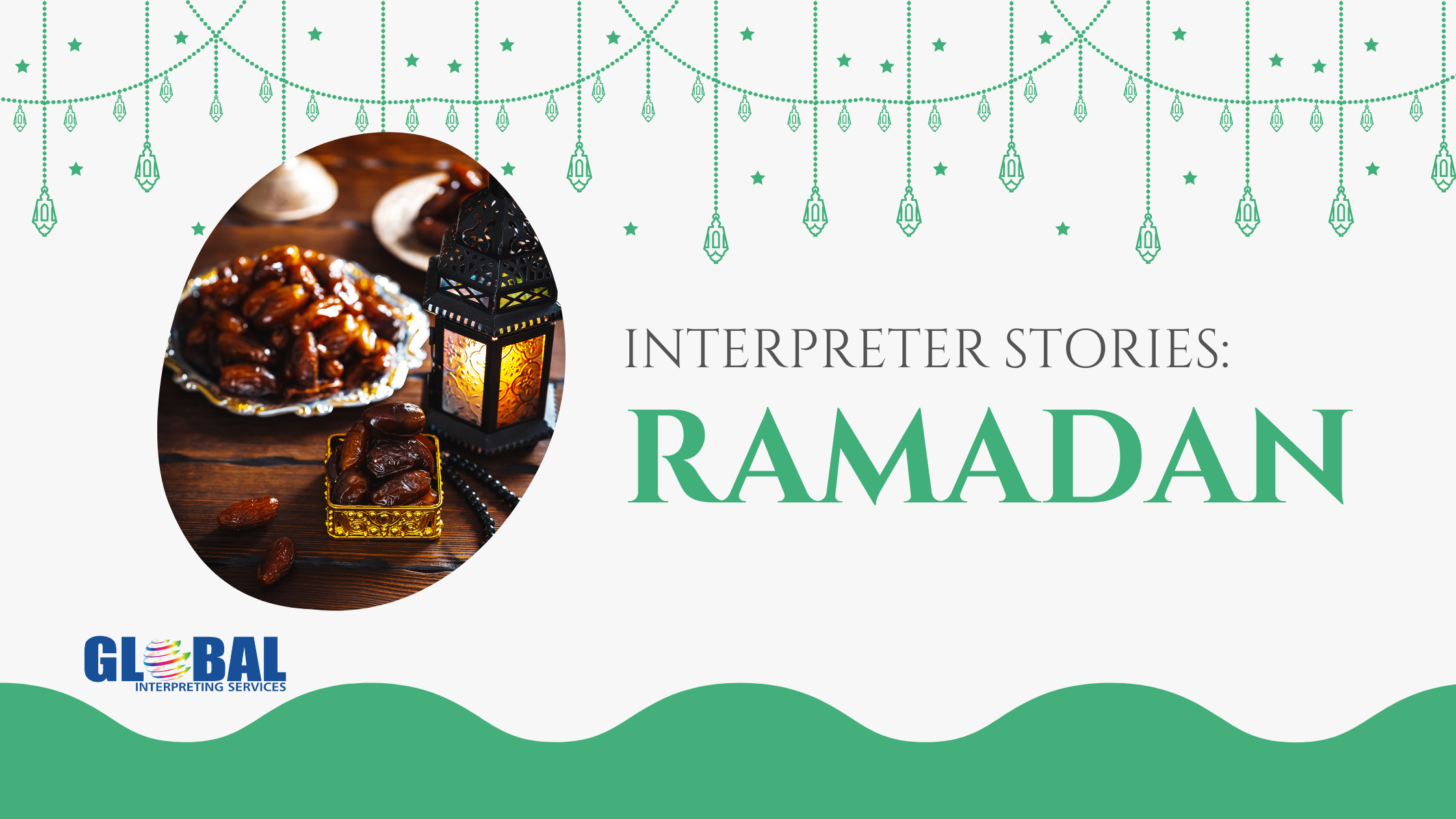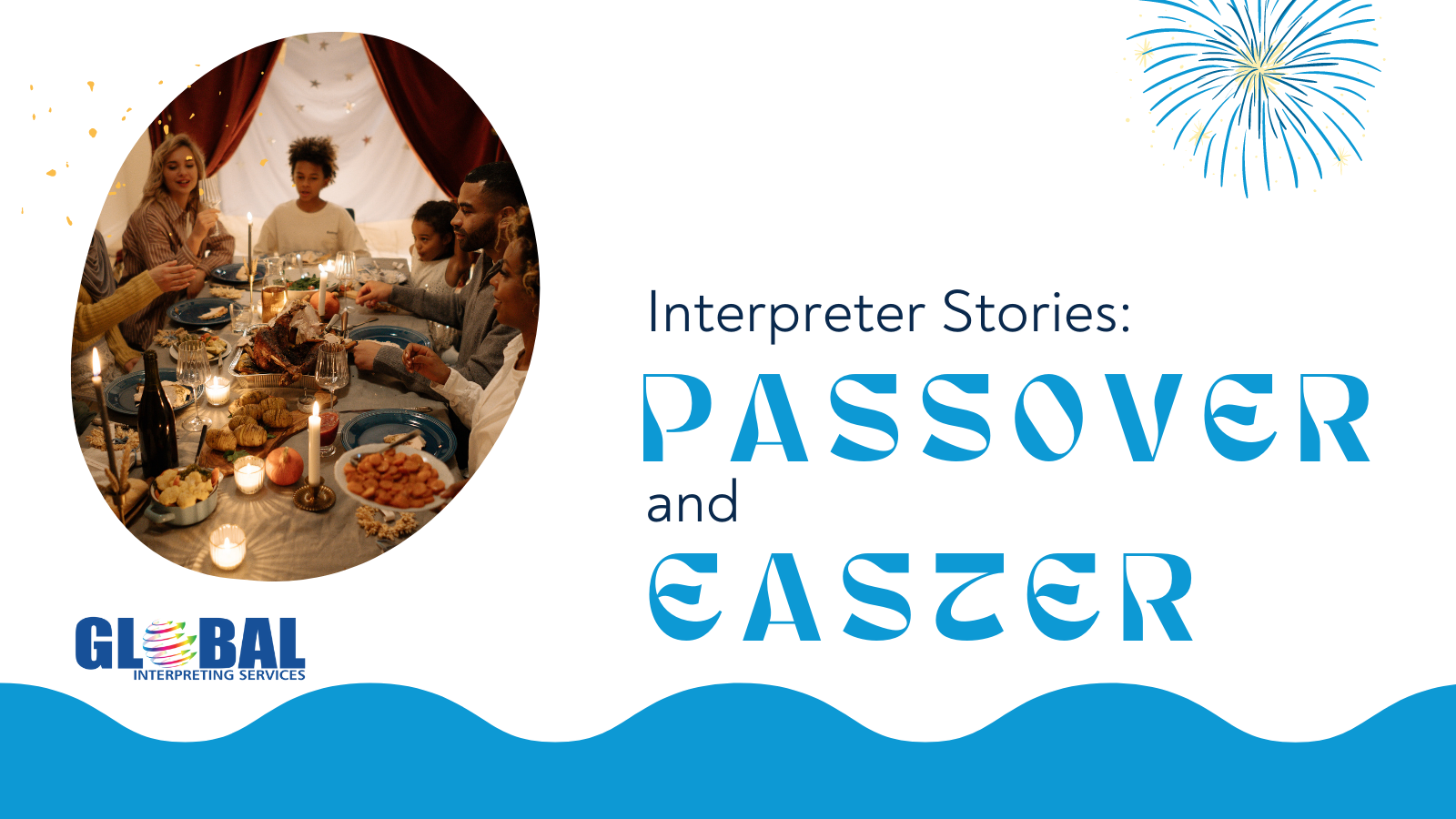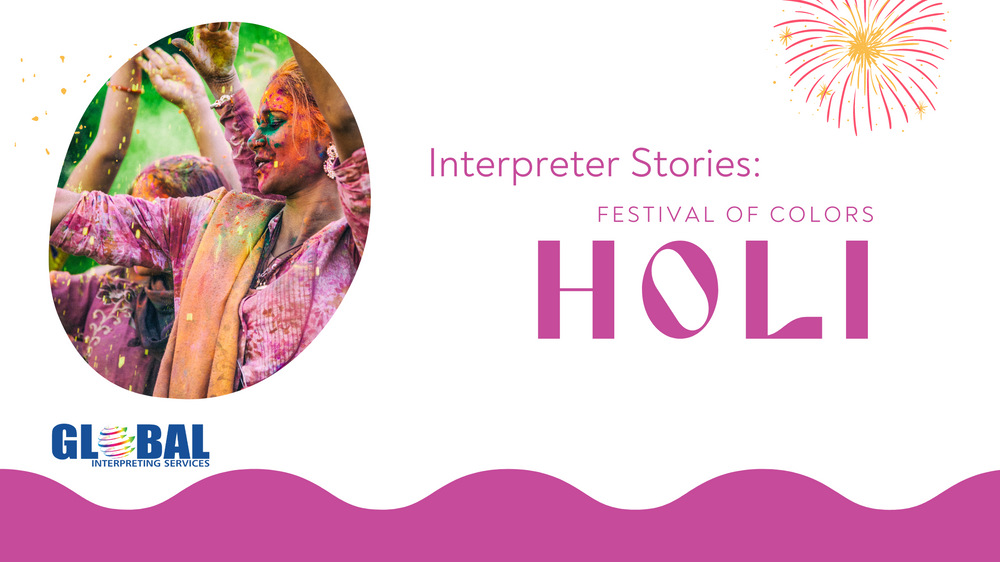Global Interpreting Services wants to highlight the many cultures we work within our interpreting services. Ramadan is approaching and for Muslims, it is considered one of the holiest months of the year. In Ramadan, Muslims commemorate the revelation of the Quran, and fast from food and drink during the sunlit hours as a means of drawing closer to God and cultivating self-control, gratitude, and compassion for those less fortunate.
Several interpreters provided responses for their celebration of Ramadan. Rana was born and raised in Baghdad, Iraq, and moved to the US in 1999. She started working as an interpreter in 2017. Agim was born and raised in Ulcinj, Montenegro, former Yugoslavia. He worked in Montenegro as an interpreter and translator before moving to the U.S. for a total of 16 years of work. Uzma is from Pakistan and has been interpreting since 2018. Omar has been interpreting for five years and is from West Bloomfield, Michigan.
What is Ramadan?
Rana: Ramadan is one of the 5 pillars of Islam. It is the ninth month in the Islamic calendar during which Muslims all over the world fast from sunrise to sunset, meaning no food or drinks! Ramadan is a month dedicated to worshipping God, asking for forgiveness for mistakes we’ve made throughout the year, and reflecting on how to better ourselves.
Agim: The month of Ramadan is more a religious observance than a celebration but it ends with Eid which is like Christmas to Muslims in the sense that it is the central celebration in Islam, when we celebrate the beginning of the revelation of our Holy Book.
Omar: Ramadan and Eid are a time for family and reunion with one’s community and of course with God. Presents are a big part of Eid, especially for children.
What is a typical day like during Ramadan?
R: A typical day during Ramadan consists of many different practices. First, it starts by usually waking up at approximately 4:30 in the morning. Then we wash our face and body and make a large breakfast that will fill us up for as long as possible. The meal is followed by a morning prayer and reading of the Quran after. In a way, it is kind of like meditating so you can start your day with a peaceful and clear mindset. Then the day is followed by our regular routine of prayers and followed by the same activities we perform daily. Some people like to take a nap to make the day go by faster. Everything is pretty much basically a regular day just without the consumption of food or water. After the sun has set we lay out a big meal that the family prays for and then digs in. The meal is then followed by another prayer and reciting of the Quran which is followed by bed and then repeated the next day.
A: A typical day in Ramadan includes fasting from food and beverage from sun-up to sundown, with an emphasis on doing good deeds, giving charity, and meditating on self-improvement. Abstaining from expressing anger, lying, and other misdeeds are encouraged. The day usually ends with a break-fast “iftar” meal, breaking bread with family, friends, and neighbors.
O: Days and nights in Ramadan are full of worship. The day begins with a pre-dawn meal known as suhoor. In the Muslim world, tradition calls for every street to have a drum beater who wakes people up so that they can eat before the dawn prayer known as Fajr. When the call to prayer rings out from minarets, those who are fasting will not eat again until after the sun goes down. Muslims are encouraged to read more Quran during the day in Ramadan. Good deeds are worth more during this holy month, so people may go out of their way to be nicer! After a long day, the fast is broken with a meal known as the iftar. Afterward, the pious gather in the mosque for night prayers, where the Quran is recited aloud. The entire Quran will be read aloud over the course of a month in these night prayers.
Why do some people fast and some don't?
R: Fasting is required for all capable Muslims. However, if someone is sick or traveling, they are not expected to fast. They can either make up the days they missed or supply a meal to a hungry person.
A: Not all Muslims fast, it depends on people’s level of devotion and because it is not prescribed for people who have a condition that prevents them from fasting. The lack of fasting can be made up with charity and good deeds, like feeding the hungry.
U: Most people fast because they want to be considerate and thoughtful for those who are not as fortunate as others. It is a holiday to think of those in need. Most people who fast also have to be healthy enough to part take in it and have the body resistance to build up and train your body to have the strength to go that long without food or water and still be able to move around. Most people who do not take part in Ramadan are those who are old, unhealthy, pregnant, sick, kids under the age of 10, and women who are menstruating.
Can others eat in front of you during the fast?
R: In the Middle East, restaurants would close during the day out of respect, but living in the US has taught us to be more resilient. When my children started fasting (around 4th grade), I used to go check them. I would find them sitting at their lunch table lunch with other kids, unaffected. Non-Muslims are not expected to stop eating just because we are not!
U: One can eat in front of someone who is fasting there are no written rules against it. Although you will be looked down upon considering that it is a very rude thing to do when someone has not eaten all day, it is overall disrespectful.
What is Eid?
R: At the end of the month, we celebrate with a holiday called Eid Al Fitr. In the morning, we attend a prayer session/sermon at the mosque, then families get together and eat our first breakfast after fasting for 30 days. We usually like to dress up and take the kids out for breakfast where we can share a meal with our entire extended family!
U: Ramadan and Eid are in a way like Christmas there are days where you enjoy meals with all your family. The biggest day is Eid which one can compare to a big party for the accomplishments made throughout Ramadan. The day starts with going to the mosque to pray together. Most families make a huge feast and give each other gifts and money.
A: The purpose of the fast is to achieve a state of piousness, becoming conscious of God, learning self-control and thinking of those who are hungry and don’t have a choice but to fast.
Do you have a Ramadan/Eid memory or tradition you would like to share?
U: A memory that I enjoy thinking about when talked to about Ramadan and Eid is my mom waking us siblings up and smelling breakfast sugar noodles. My siblings and I would run to see who gets to the bathroom first to clean up. Then after praying we would all sit together and enjoy our noodles together. After we would put on our colorful dresses and play together. Then my father would walk around the room and treat us all with gifts of money. I still think about the smell of the noodles to this day.
A: While we don’t share presents for Eid, we do give money to children like candy for Halloween. In my Hometown, children would go house to house in the morning and say “Happy Eid,” to which the host would respond in kind while handing them money in coins.
R: For us, Ramadan is a month of family dinners every night since we are all breaking fast at the same time. We prefer to break our fasts with a date as a way to regulate our low blood sugar, and then eat a hearty meal. After dinner, we like to pray together.
O: Every Ramadan my community gathers at Sam’s Club to package boxes of food for the needy, and then we distribute these boxes to mosques and community centers in poor neighborhoods. I’ve been doing this since I was small. It brings the community together.
What is the greatest misconception about Ramadan?
A: The biggest misconception is that it’s rude to eat in front of a fasting Muslim. This is incorrect. It’s thoughtful and respectful to refrain from eating in front of us but it’s perfectly fine to eat in front of us, but asking us to join in might be taken as rude. The idea is trying not to burden or inconvenience anyone with our fasting.
U: In my opinion, one of the greatest misconceptions about Ramadan and fasting is people thinking that we are starving ourselves when really it's just building a routine one’s body learns to get used to, and becomes less difficult day by day. There is also the misconception that a lot of people think that we can drink water when nothing can enter your mouth after a certain amount of time.
O: People are often surprised that even water is not allowed in a fast. No food or water from dawn to dusk!
What can YOU do to be respectful of Muslim friends during Ramadan?
A: If you have a friend who is Muslim, just wish them a fruitful Ramadan, acceptance of their fast and a Happy Eid! Other than that, we’re pretty low-maintenance friends. Peace and love!
U: There are many things one can do when trying to show respect to their Muslim friends during this time. A main part of it is just to look the other way when eating or drinking water and not rub it in their face. Also be understanding with them if they do not want to do much or talk much, one must remember they are probably out of energy and exhausted from not being able to eat. Just being considerate and knowing they might be a little "hangry" as well, if they need help at work, help them as much as you can.
O: Saying "Ramadan Mubarak", which basically means to have a blessed Ramadan, will certainly cheer your Muslim friends up. Likewise, when Eid comes around at the end of Ramadan, say “Eid Mubarak."
To all our Muslim interpreters and clients - Ramadan Mubarak!
Check back as we add more interpreter stories from different cultures around the world.



